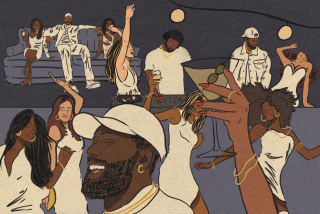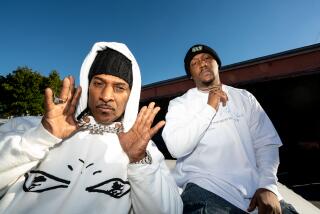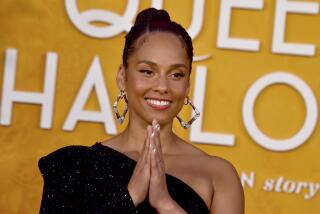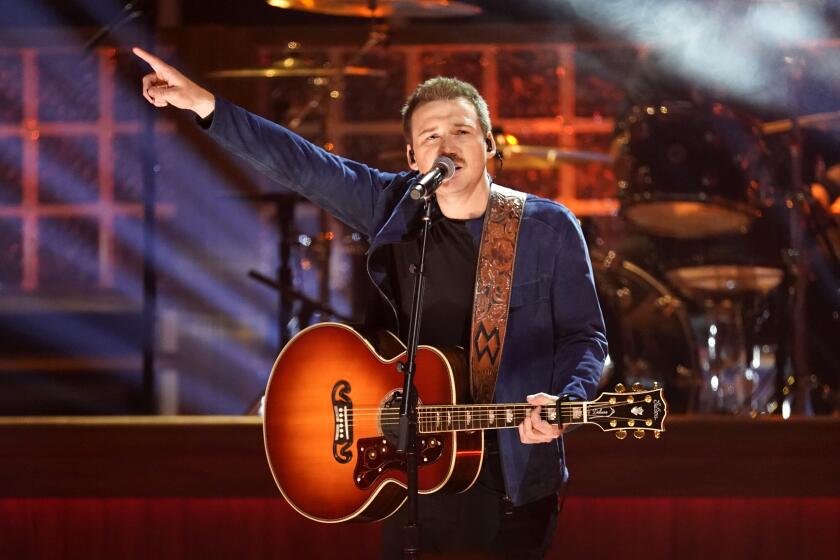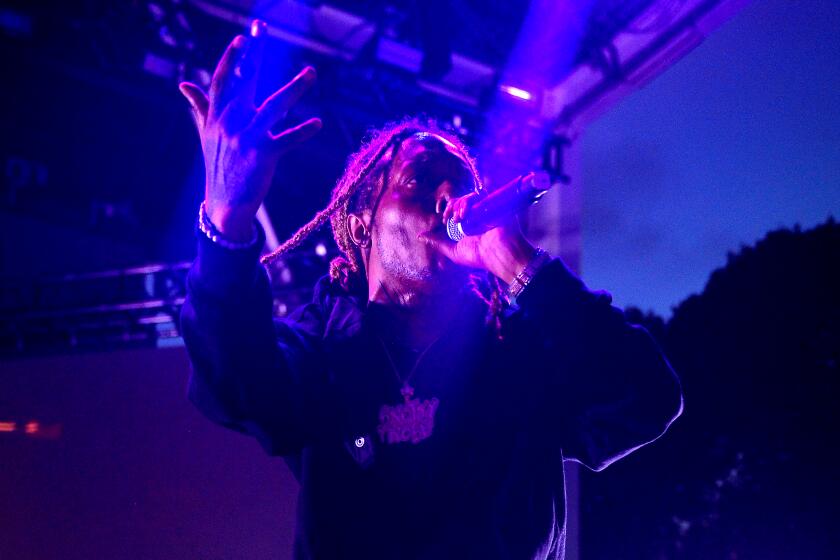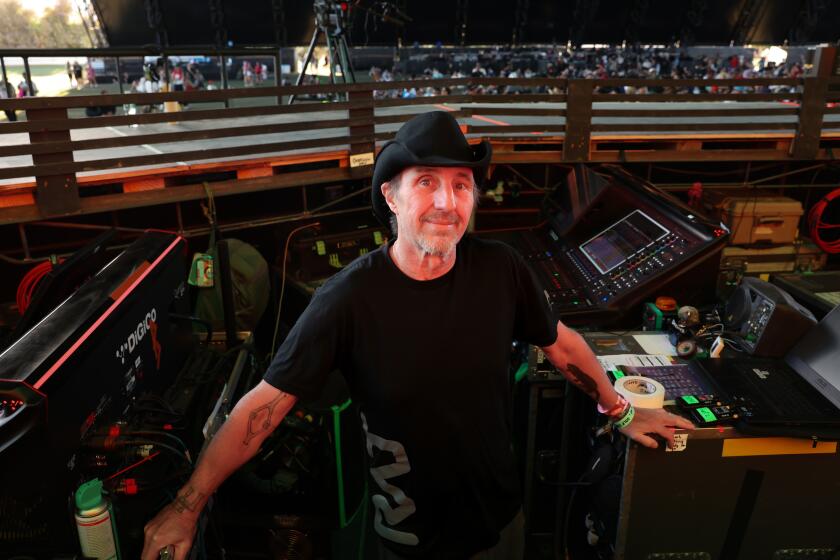BET Experience 2015: Erykah Badu, Janelle Monae talk black hair, hip-hop
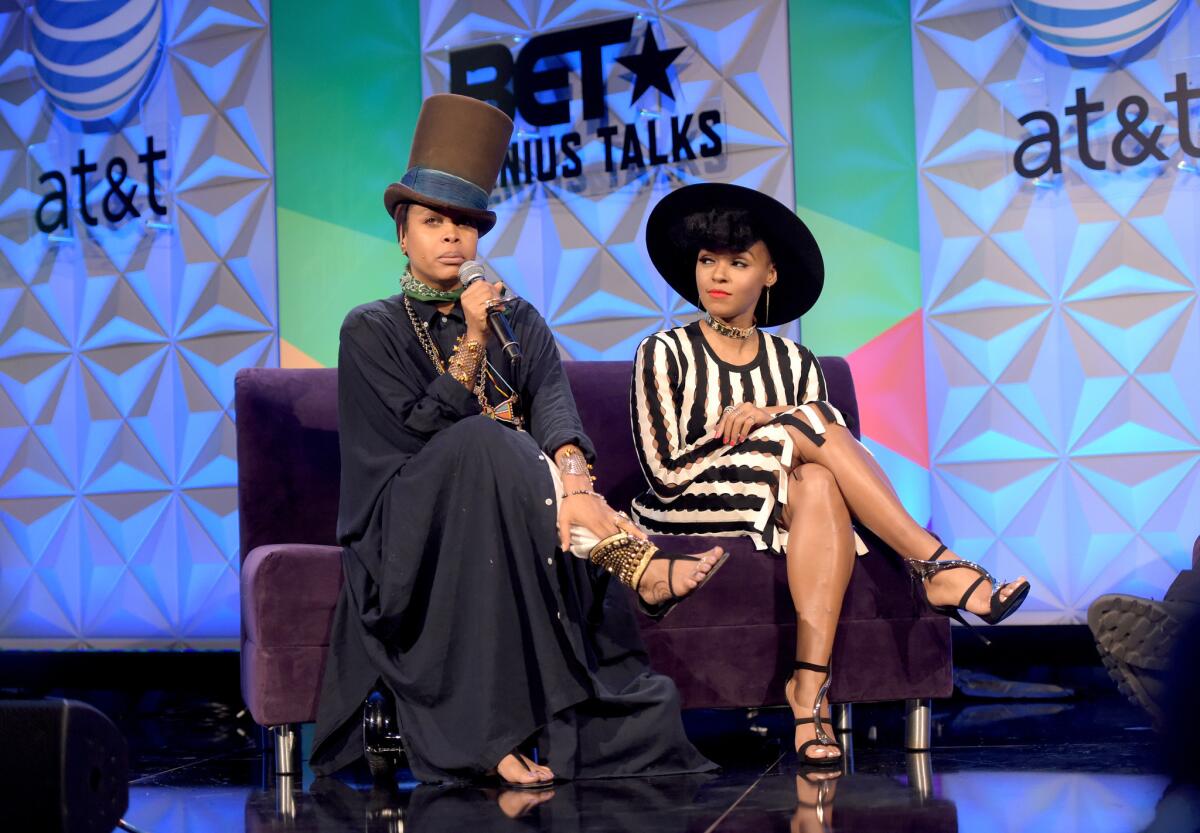
Recording artists Erykah Badu (L) and Janelle Monae speak onstage at the Genius Talks presented by AT&T during the 2015 BET Experience at the Los Angeles Convention Center on June 27, 2015 in Los Angeles, California.
In an industry rife with rules and expectations, Janelle Monae and Erykah Badu purposefully stand out. Self-described as “wonder twins,” the two artists make socially conscious and sonically unique music across genres.
Saturday, Monae and Badu talked with Reggie Ossé of “The Combat Jack Show” as part of the Genius Talks series hosted by BET at the L.A. Convention Center during the network’s weekend of activities leading up to its Sunday awards show.
The weekend, with events that included a Kevin Hart comedy show Thursday, a fashion show Saturday and a number of free performances from up-and-coming musicians throughout, is known as the BET Experience.
Monae and Badu spoke about their efforts to make music in spite of the restrictions the industry and world try to place on them.
“There are so many rules to everything we do,” said Badu, her feet resting on an electronic skateboard she rode onto the stage. “There’s no room for creativity in art because there’s always this structure we have to follow. Art doesn’t work that way. Inspiration doesn’t work that way. I just don’t know the rules. I don’t want to know them.”
“What we like to say at Wondaland is that we do things according to our soul clock,” said Monae, piggybacking off of Badu’s comments. “You have to do things according to your inner compass and that’s what I go by.”
Monae and Badu are known for their integration of genres and styles into their discography. In sharing their favorite tracks (Badu loves Grandmaster Flash and the Furious Five’s “The Message”; Monae called Tupac Shakur the man she thought she would marry), they asserted the emotional resonance of hip-hop and rap (“talking songs” as Badu called them) sometimes can’t be harnessed with pure melody.
“I use hip-hop as a form of expression,” said Monae, who raps on her hit with Badu, “Q.U.E.E.N.” “I don’t consider myself a rapper or a hip-hop disciple, but whenever I’m trying to communicate, I can sing it or sometimes when you rap it or speak it, it has a totally different aggression or meaning to it. Sometimes if it’s too melodic, they’re not going to feel or understand the power. With hip-hop you can be as real as you want to.”
For Badu, hip-hop is a way of life, she said, one bigger than religion.
“I say that because people all over the world bow their heads to different names of the creator, but everybody nods their head in unison to the snare and the kick,” she said. “It brings us all together. It’s like a pseudo religion or a tribe.”
Badu and Monae not only stand out from the pack with their music, but also in their hairstyles, which Ossé called “unapologetically black.” Both women are known for rocking natural styles, an act Badu said is inherently political.
“I think everything we do in America as black women or as black people is a political statement,” she said. “We’re making a political statement when we’re wearing an afro or locks. We’re being who we are, especially in a society that does not encourage that part of our beauty.”
But having natural hair shouldn’t be the goal per se, Badu cautioned. She continued citing a quote she once heard: “I rather see a man with a natural mind and processed head than see someone with a processed mind and a natural head.”
Monae said it boils down to self-love.
“You have to live for you so you better learn to love you,” she said.
One highlight of the conversation was their discussion of artist responsibility, particularly in light of continued instances of police brutality and demonstrations of racism against black people. Badu, noting that her personal call to speak out is not everyone’s, said she wants to be a representation of what activism can look like for young people and other artists.
“It’s not always standing in the picket lines,” she said. “Sometimes it’s using the frequency of my songs to create dialogue so that someone can change something in themselves.”
Monae agreed, citing her personal obligation to be socially conscious in her words and her music “because my grandmother sacrificed for me to be who I am,” she said.
“Some people don’t feel that responsibility, and I used to judge, but everybody’s purpose is not yours,” she said.
Before ending the 40-minute discussion -- which also hit on Badu’s wide-reaching career as a DJ, actress and midwife and Monae’s Wondaland record label’s forthcoming “Eephus” EP -- Monae left the audience with words to live by. To make a mainstream career independent of the bureaucracy of major labels, one must take gambles, she said.
“It’s not that I don’t experience fear,” she said, “but I understand that being fearless has to come first.”
The BET Awards airs Sunday at 8 p.m. from L.A. Live.
Follow the reporter on Twitter: @TrevellAnderson.
More to Read
The biggest entertainment stories
Get our big stories about Hollywood, film, television, music, arts, culture and more right in your inbox as soon as they publish.
You may occasionally receive promotional content from the Los Angeles Times.
